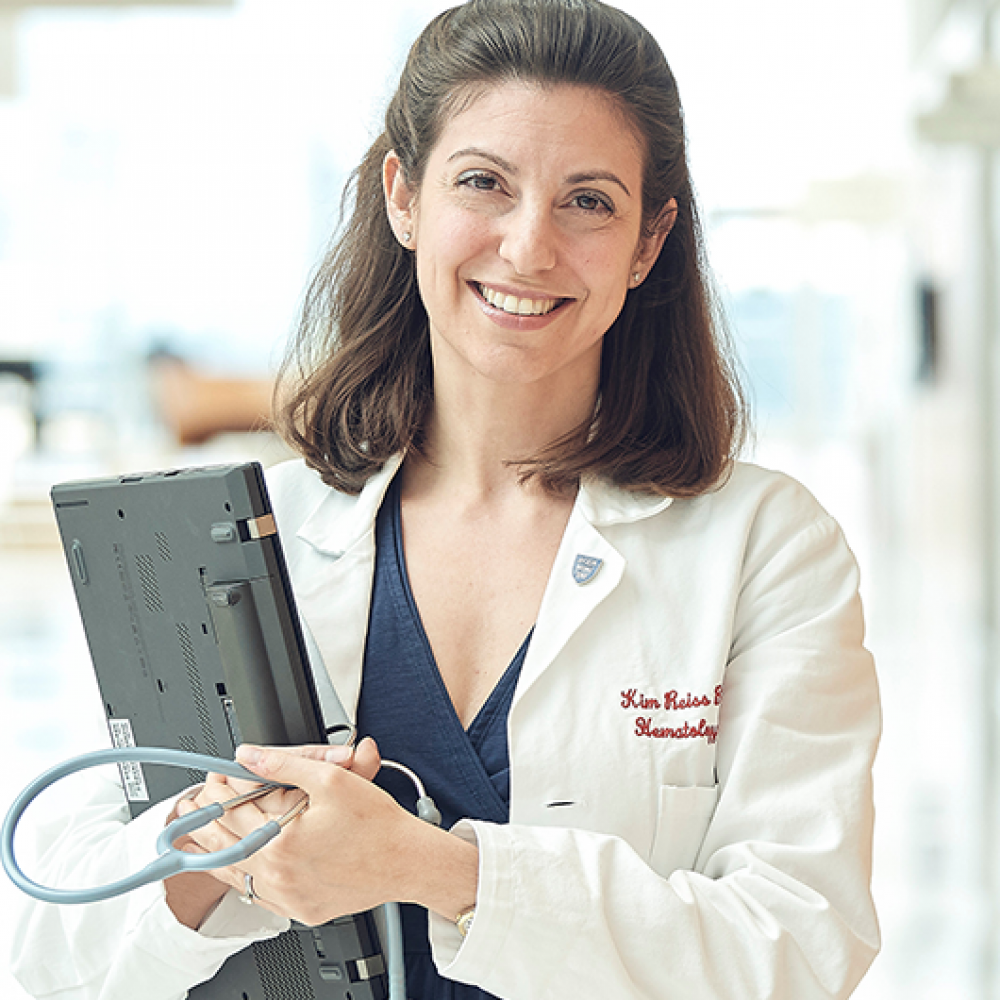These researchers dedicate their careers to finding new treatments and cures for people with cancer.

Defying the Odds
“Pancreatic cancer is one of those diseases in which progress has been very slow,” says Dr. Kim Reiss Binder. “Up until 2011, we only had a single chemotherapy drug that was FDA approved for this disease, and its benefit to patients was marginal at best."
The low survival rates of pancreatic cancer don’t intimidate Dr. Reiss Binder. In fact, she’s motivated by the odds. As a child of two oncology professionals, she grew up hearing stories of how cancer impacted patients and intentionally chose a field in which the need to improve outcomes is great.
In 2011 and 2013, new chemotherapy combinations arrived for patients, but the 5-year overall survival for the disease, which can be inherited, remains at 8 percent, according to Cancer.Net. Dr. Reiss Binder believes patients with the BRCA1, BRCA2, and PALB2 genes, which also cause breast cancer, ovarian cancer, and prostate cancer, need their own treatment strategy.
"When pancreatic cancer develops in this setting, the cells are very sensitive to chemotherapies that damage the DNA, namely platinum chemotherapy. They also may respond to a group of drugs called PARP inhibitors, which are pills with much less toxicity than infused chemotherapy," explains Dr. Reiss Binder. "I tell patients their disease is actually biologically different than ‘regular’ pancreatic cancer."
With support from a Career Development Award (CDA), Dr. Reiss Binder is leading a study at the University of Pennsylvania in which patients stop using infused chemotherapy and switch to the PARP inhibitor pill rucaparib.
"We presented some extremely preliminary results of this trial in early April, showing exciting activity and minimal toxicity of this option. My hope is that we can find a better way than perpetual infused chemotherapy for these patients, and I think that PARP inhibitors will play a major role in this."
The CDA Dr. Reiss Binder received has played a major role improving outcomes for patients. "The impact of donors is extraordinary. Researchers need resources to carry out our work – both the clinical trials and the key science that goes with them. One of the most important parts of any trial is that it moves forward our understanding of why a drug does or doesn’t work and what changes occur in the cancer over time that lead to resistance. This is what helps us design the next steps and the next generation of trials," says Dr. Reiss Binder.
Despite the poor prognosis of a pancreatic cancer diagnosis, the study is allowing patients the freedom to plan for next steps as they conquer cancer.
Researcher and oncologist Dr. Kim Reiss Binder is an assistant professor of medicine at the Hospital of the University of Pennsylvania.
"The chemotherapy toxicities disappear, and patients are able to go back to living reasonably normal lives, at least temporarily," shares Dr. Reiss Binder. “One patient started her own business, another traveled to Europe to meet her new granddaughter, a third went on safari to Africa. It’s so rewarding to maintain a patient’s quality of life."
